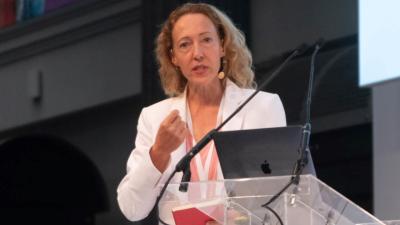
Occupational safety and health in the aquaculture industry – a global review
Report: Occupational health and safety in the aquaculture industry – a global review.
This page is approximately a 3 minute read
This page was published on

Speaking on the Lloyd’s Register Foundation Global Safety Podcast, available to listen on all podcast platforms here, Dr Jensen states:
“I would like to see policymakers and decision makers try to understand the people whose lives they're trying to change or influence or improve.
“We see the chain of evidence running from scientists to policymakers and then from policymakers into regulations. What we see less of is a real effort to understand what the constraints are that people face. What are the trade-offs that they make when they face a great spectrum of risks in their lives?
“If we look at that, we can design much better, more effective policies.”
The Global Safety Podcast, presented by Professor Danielle George and produced by Fresh Air Productions, investigates the biggest safety issues facing us all and looks at the latest science and innovation developments to safeguard our future in an unpredictable world.
Episode one of the third series sees thought leaders including Dr Jensen, Dr Sarah Cumbers from Lloyd’s Register Foundation, Seth Schultz from Resilience Rising, writer and broadcaster Michael Blastland, Professor Tracey Brown from Sense about Science and Professor Wändi Bruine de Bruin from the University of Southern California discuss safety in a post-covid world, and how we understand and communicate risk.
Professor Brown from Sense about Science also makes the case for the importance of listening to the public. She adds:
“I think the lack of understanding of risk from top to bottom of society has been really problematic and probably singularly the biggest cause of failure in pandemic policy.
“We face many risks. Health visitors and people working in social services had to think about the risks of child protection failing during a time when everyone was locked indoors, for example. We wouldn't want them to stop thinking about that risk because of the risk of Covid.
“I think the big lesson for governments is the importance of listening to people about the trade-offs that they have to make and the consequences for their other social responsibilities.
“The key thing that I would like to change is information providers - and they generally are at governmental level - I would like to see information providers start to think of themselves as answering questions rather than providing statistics”.
Dr Sarah Cumbers from Lloyd’s Register Foundation said:
“We need to do better at equipping people with skills that enable them to make informed decisions. And we need to do better at providing people with clear and understandable information and then listening to the questions that they have about risk in their context.
“The Lloyd’s Register Foundation World Risk Poll asks people around the world about the impacts of risk and safety issues on their daily lives. The poll gives us a unique insight into answers to these questions so we can really start to unpick what's driving people's perceptions and experiences of risk globally. We will launch the results of the 2021 poll over the next few months to help better equip policy makers with information about people’s concerns”.